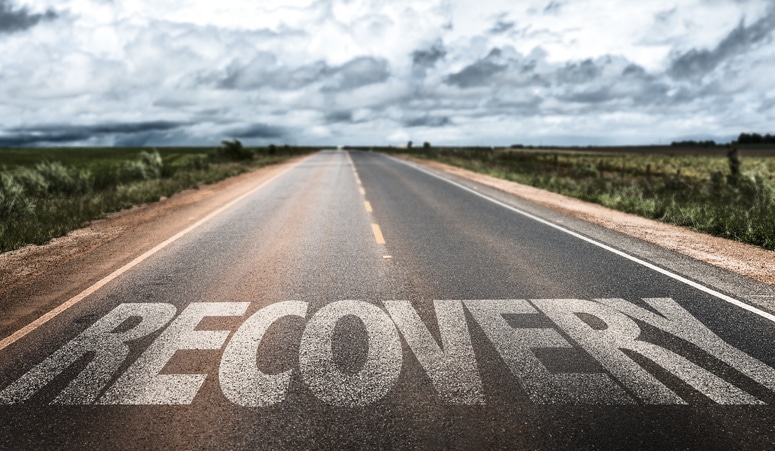By Beau Black
How does addiction affect you? Substance use disorder impacts all of us, directly or indirectly; the effects of addiction may be physical, relational, financial, or societal. The effects of addiction on those around us, like family, friends, and co-workers, are wide-ranging, but what about its effects on ourselves? They can seem overwhelming. And because we’re all affected in one way or another, the addiction recovery process is for everyone.
“Recovery is for Everyone” is the theme of this year’s National Recovery Month. This observance highlights the importance of dealing with addiction and promotes the variety of treatment options available. It also celebrates the progress of those during recovery. According to the National Association for Alcohol and Drug Abuse Counselors, National Recovery Month reinforces the positive message that “Behavioral health is essential to overall health, prevention works, treatment is effective, and people can and do recover.”
Behavioral health is essential to overall health, prevention works, treatment is effective, and people can and do recover.
What is Addiction?
Addiction is a chronic disease involving the compulsive use of substances or behaviors despite potential negative consequences. It is characterized by the inability to control cravings, a loss of control over use, continued use despite adverse consequences, and physical and mental dependency.
Who Struggles with Addiction?
Millions of Americans struggle with substance use disorder and/or alcoholism. To show the large scope of the problem, here are some statistics:
- 11.7% of Americans (or 31.9 million people) over age 12 use illegal drugs; of these, nearly a quarter have an opioid disorder (addiction to opioid-based painkillers or heroin)
- 14.8% of Americans over 12 have an alcohol use disorder
- 22% of males used illegal drugs or misused prescription drugs in the last year
- 17% of females used illegal drugs or misused prescription drugs in the last year
- People who try drugs at a younger age (under 13) are much more likely to struggle with addiction than those who try them later
One of the most public fronts in the nation’s battle against substance addiction has been prescription opioid abuse, which has been described as an epidemic. Opioid misuse is currently the No. 1 reason for calls at poison control centers around the country. Overprescribing opioids for pain control is to blame for the bulk of this crisis. Fortunately, new regulations and smarter prescribing guidelines have reduced the number of prescriptions for opioid painkillers.
Those most likely to deal with substance abuse, according to Healthline.com, are individuals who have:
- Close friends or family who abuse substances
- Easy access to drugs (perhaps from friends or family)
- Mental health struggles like depression and anxiety
- Experienced physical or sexual abuse
- Suffered other types of trauma
The Physical and Mental Health Effects of Addiction
Addiction can have a devastating toll on one’s physical and mental health. Not only can the substances cause serious physical damage, but the lifestyle that often accompanies substance abuse can leave long-lasting effects on the body. In addition to physical harm, addiction can seriously affect a person’s mental health, leading to depression, anxiety, and other mental health issues.
The effects of addiction on the individual can impact us on seemingly every front of life. The long list of physical effects of addiction includes increased risk of heart and liver problems and cancer, brain damage, sexual dysfunction, miscarriage, insomnia, dental problems, and overdose.
The potential psychological effects of addiction include mood swings, memory problems, anxiety, paranoia, confusion, loss of impulse control, violent behavior, and depression. And addiction can also bring legal problems, encounters with the criminal justice system, financial problems, relationship problems, employment problems … the lists go on and on. They create a bleak picture that can end with the loss of freedom or even death, but you don’t have to stay stuck with these consequences.
The Physical Effects of Addiction
The physical effects of addiction can be serious and long-lasting. Substance abuse can cause physical damage to the organs, reduce cognitive functioning, and lead to nutritional deficiencies. It can also severely impact the immune system, making it hard for the body to fight off disease. Addiction can even lead to death due to overdose or the long-term damage caused by the substances. Understanding the physical effects of addiction is essential to take steps to prevent or combat it.
The Mental Health Effects of Addiction
Many mental health issues are associated with addiction, such as depression, anxiety, and emotional trauma. These effects can be immediate or long-term and can be triggered by substance use or withdrawal. These effects can be devastating, impacting relationships, careers, social status, and an individual’s overall well-being. In this section, we will discuss the mental health effects of addiction, including the physical and psychological symptoms, the impact on individuals and families, and the available treatments.

Impact of Addiction on Individuals, Families, and Communities
The impact of addiction on individuals, families, and communities cannot be overstated. Addiction affects physical and mental health, leading to various health complications. Addiction can also cause financial strain, as individuals may spend their money on substances rather than necessities. Furthermore, addiction can lead to strained family relationships, broken marriages, and even homelessness. Lastly, the social stigma associated with addiction can cause feelings of shame and worthlessness, making it even more difficult for individuals to seek help. The devastating effects of addiction are far-reaching, but resources are available to help those suffering.
Impact on Individuals
Addiction affects physical and mental health and can lead to various issues, including depression, anxiety, and other mental health issues. Addiction is also linked to an increased risk of suicide. Furthermore, substance use can lead to financial instability and legal and social problems. It can cause strained relationships, job loss, and homelessness. Ultimately, addiction can lead to a loss of independence and autonomy, with the individual unable to make decisions or control their own behavior.
Impact on Families
The impact of addiction on families can lead to broken relationships, increased financial strain, and emotional turmoil. Families of those suffering from addiction may experience a wide range of emotions, such as guilt, shame, fear, and anger. Communication can break down, trust can be lost, and family members can become isolated. Addiction can also have long-term consequences, such as reduced education and employment opportunities for family members. Families need to reach out for help and support to overcome the effects of addiction.
Impact on Communities
The impact of addiction on communities can lead to a rise in crime rates, homelessness, and an overall decrease in quality of life. Additionally, addiction can cause a strain on social services, as those in need of help often require long-term care. The financial cost of addiction to communities is immense, and the social stigma associated with it can create a hostile environment for those suffering from addiction. Communities must come together to provide resources, education, and support to those struggling with addiction to create healthier, safer environments.
The Social Stigma of Addiction
The social stigma of addiction is a pervasive and destructive force that only further exacerbates the suffering caused by addiction. It is a form of discrimination and judgment based on negative stereotypes and misconceptions and can have devastating consequences. People suffering from addiction are often seen as weak, immoral, or dangerous. This can lead to feelings of guilt, shame, and isolation, which can make it harder for them to seek help.
The stigma of addiction also discourages people from talking openly about the issue, preventing individuals, families, and communities from accessing the necessary resources. We must challenge the stigma of addiction and create a more compassionate and supportive environment for those affected by this illness.
What is Recovery?
The Substance Abuse and Mental Health Services Administration (SAMHSA) defines recovery as “a process of change through which individuals improve their health and wellness, live a self-directed life, and strive to reach their full potential.” The organization identifies four crucial areas that support addicts in recovery during the treatment process:
- Health: Beyond just abstaining from substance use, it’s making healthy choices for our physical and mental wellbeing
- Home: Securing a safe and stable place to live
- Purpose: Having responsibilities that give our lives meaning and a reason to get up in the morning, whether it’s working, volunteering, or home/school duties
- Community: Forming relationships with family and friends who support and help us move toward our goals
The effects of addiction on the individual can impact us on seemingly every front of life.
How to Get Help for Addiction
Addiction has a devastating impact on individuals, families, and communities. The physical and mental health effects can be severe and long-lasting, while the financial costs are substantial. Furthermore, the social stigma associated with addiction can further damage the lives of those affected. It is essential to raise awareness about the available resources and help for those struggling with addiction. Only then can we start to combat the negative effects of addiction and help those in need.
Don’t wait until the effects of your addiction overwhelm you. If you’ve decided it’s time to begin to deal with your addiction and uncover its causes, The Meadows offers a range of programs and resources to help. Start or continue your journey into recovery with us today.

